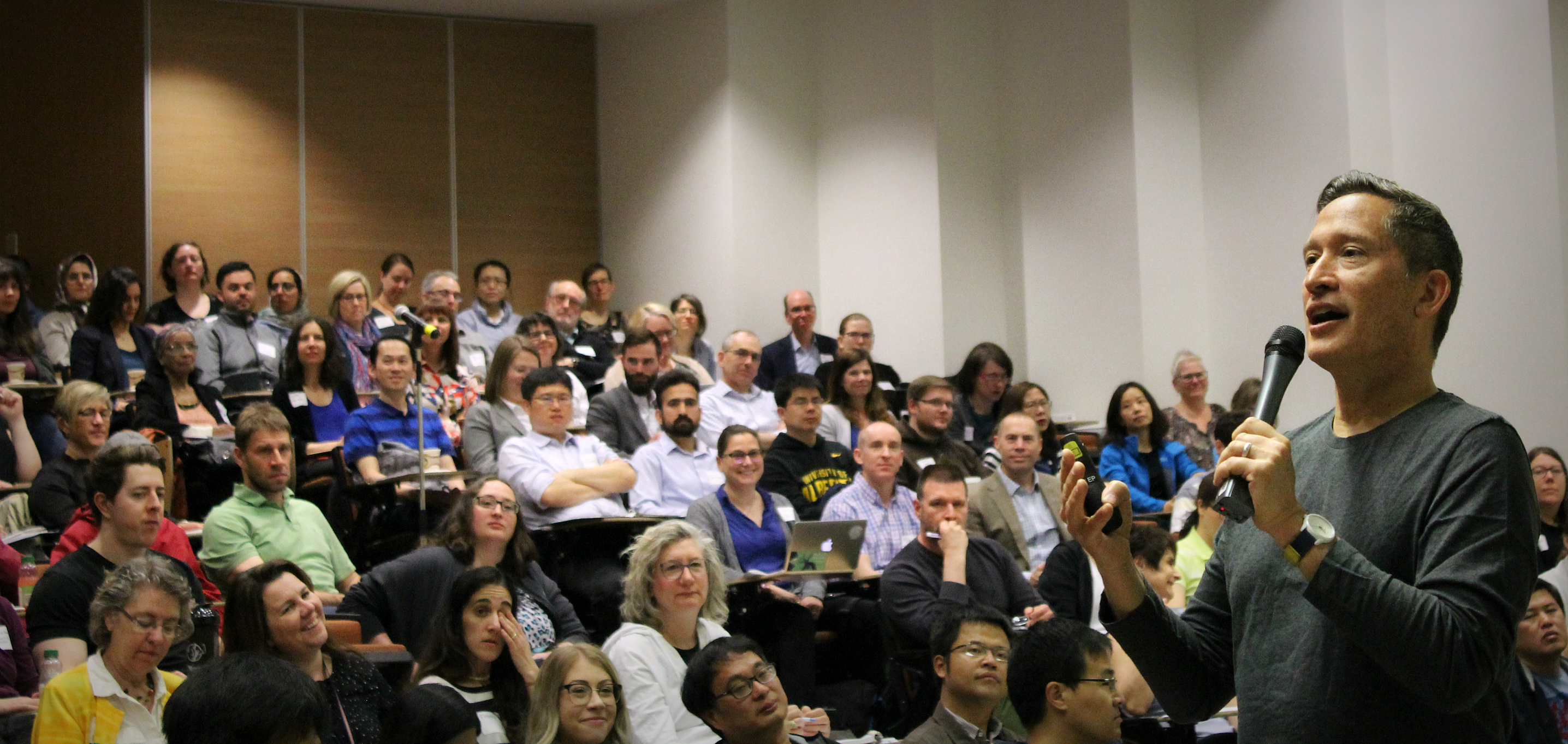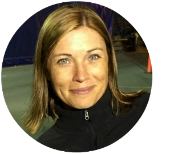
At times, university teaching can feel like lonely, isolated work - an experience which educational psychologist, Lee Shulman at Stanford University aptly named "pedagogical solitude" (1993, p.6). Many instructors care deeply about their teaching yet feel alone when facing 40, 80, or 200+ students in a lecture hall and when making the myriad of decisions related to student interactions, assessment, and evaluations of a course.
In workshops at the University of Alberta's Centre for Teaching and Learning (CTL)Centre for Teaching and Learning (CTL), instructors routinely request more time to talk about their teaching concerns with instructor colleagues from different faculties and departments. In essence, instructors are looking for opportunities to get together and 'jam' about their teaching across disciplines.
In response, we created a welcoming, confidential space for collegial cross-disciplinary dialogue about teaching at the CTL. This faculty learning community (FLC) gathered from September 2018 to April 2019.
What Is an FLC?
An FLC is a community of practice (CoP) - a model of social learning in which practical competence is gained through participation and engagement in a community (Wenger, 1998). The instructors in a post-secondary CoP gather regularly to share and develop knowledge and skills for university teaching (Wenger, 2010). While CoPs tend to be initiated at a grassroots level in response to a particular problem or task of the group, FLCs tend to be initiated by a Centre for Teaching and Learning as faculty development and organized by a predetermined facilitator who structures the program (Stark & Smith, 2016).
The first FLCs emerged at Miami University by Milton Cox (2004) who defined them as cross-disciplinary groups of ideally 8 to 12 faculty and staff who engage and collaborate over a year to address a topic or task, as well as build community. At several Canadian research-intensive universities (such as the University of Calgary, McGill, University of British Columbia, University of Toronto, and the University of Waterloo), instructors meet in FLCs and CoPs through their Teaching and Learning Centres.
What Was the Purpose of Our FLC?
At the U of A Centre for Teaching and Learning, the aim was to facilitate a group of instructors which met, on average, once per month to explore and critically reflect on students' resistance to active learning - a common teaching issue and concern. We co-facilitated structured activities and discussions about this topic. Some of the issues that may influence student reception to active learning were students' stage of intellectual development (Perry, 1981), their emerging adulthood (Arnett, 2000), and how active learning is facilitated (Finelli et al 2018). The FLC explored these issues by considering our own teaching experiences in the light of the scholarship of teaching and learning, and also with input from our university's student health services.
Who Participated?
The FLC members' years of experience teaching in post-secondary education ranged from 1 year to 20+ years and included one instructor from each of the following faculties and campuses at the U of A: Engineering (Materials); Arts (Economics); Rehabilitation Medicine (Physiotherapy); Pharmacy; Science; Augustana (Biology); Medical Lab Sciences; and Nursing.
What Did We Learn?
Participation and engagement in the topic were exceptional to the extent that the group is leading a plenary panel entitled Resistance is Futile: Strategies for Building Resilience for Active LearningResistance is Futile: Strategies for Building Resilience for Active Learning for the Festival of Teaching and Learning (FoTL), at the University of Alberta on Thursday, May 2nd. At the FoTL panel, FLC participants will discuss our findings and share their understanding of student resistance to active learning and how instructors' responses can facilitate students' learning.
For further information visit the FoTL homepage.
Cosette Lemelin, PhD - Educational Developer, Centre for Teaching and Learning

Cosette Lemelin (PhD, University of Manitoba) has 15 years of experience in post-secondary education in a 20 year career as an adult educator at the University of Winnipeg, University of Manitoba, and University of Alberta. Her doctoral dissertation focused on clinical nursing education and preceptor educators. Her unique expertise is in health professions education, classroom management, and varying aspects of interpersonal communication in post-secondary education.
Neil Haave - Associate Director (Scholarship of Teaching and Learning), Centre for Teaching and Learning

Neil Haave has been teaching molecular cell biology and biochemistry at the Augustana Campus since 1990 where he served as Chair of Science and Associate Dean. Neil is a recipient of a McCalla Professorship and Augustana's Teaching Leadership Award and Teaching Faculty Award for the Support of Information Literacy. Neil is interested in developing scholarly approaches to teaching which includes researching our own educational practices in light of the published literature on teaching and learning in higher education. He occasionally posts to his blog, Actively Learning to Teach.
References
Arnett, J. J. (2000). Emerging adulthood: A theory of development from the late teens through the twenties. American Psychologist, 55(5), 469-480. https://doi.org/10.1037/0003-066X.55.5.469
Cox, M. D. (2004). Introduction to faculty learning communities. New Directions for Teaching and Learning: Building Faculty Learning Communities. 97(Spring 2004), 5-23. http://doi.wiley.com/10.1002/tl.129
Eib, B. J., & Miller, P. (2006). Faculty Development as Community Building. International Review of Research in Open and Distance Learning. 7(2): 1-15. https://eric.ed.gov/?id=EJ806041
Shulman, L. S. (1993). Teaching as community property: Putting an end to pedagogical solitude. Change: The Magazine of Higher Learning, 25(6), 6-7. https://doi.org/10.1080/00091383.1993.9938465
Stark, A., & Smith, G. (2016). Communities of practice as agents of future faculty development. Journal of Faculty Development, 30(2), 59-67. https://www.ingentaconnect.com/contentone/nfp/jfd/2016/00000030/00000002/art00007
Tovar, M., Jukier, R., Ferris, J., & Cardoso, K. (2015). Overcoming pedagogical solitude: The transformative power of discipline-specific Faculty Learning Communities (FLCs). To Improve the Academy, 34. http://dx.doi.org/10.2139/ssrn.2630329
Wenger, E. (1998). Communities of practice: Learning, meaning, and identity. UK, Cambridge University Press. https://doi.org/10.1017/CBO9780511803932
Wegner, E. (2010). Communities of practice and social learning systems: The career of a concept. In C. Blackmore (Ed.), Social Learning Systems and Communities of Practice (pp. 179-198). Springer Verlag. https://doi.org/10.1007/978-1-84996-133-2_11
Yonge, O. J., & Davidson, S. J. (2017). Promoting scholarship and faculty development through Faculty Learning Communities. Quality Advancement in Nursing Education - Avancées En Formation Infirmière, 3(2), article 5. https://doi.org/10.17483/2368-6669.1120